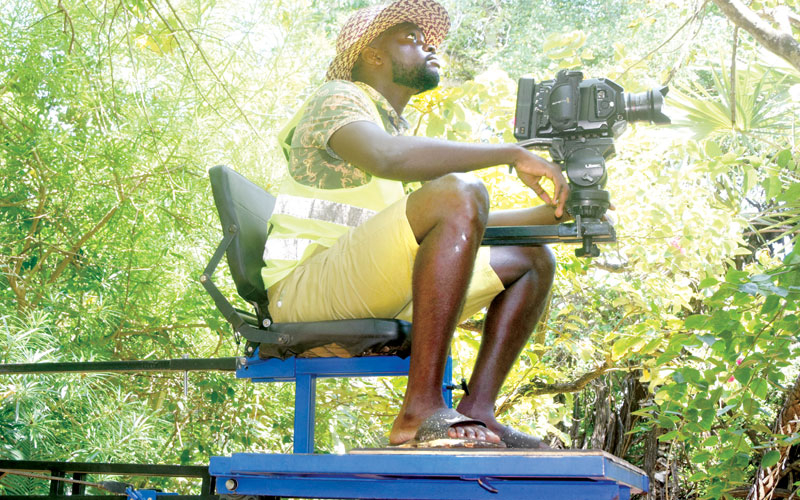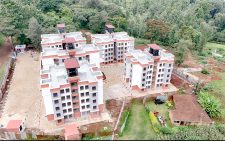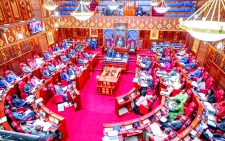Daudi Anguka defies odds to become one of Kenya’s best filmmakers

Growing up, Daudi Anguka’s mum wanted him to be an engineer, but his passion was elsewhere — filmmaking. Financial incapability didn’t give him a chance to go to college, but as HARRISON KIVISU writes, Anguka is proving himself as one of the best filmmakers in Kenya, a decade later
When Daudi Otieno Anguka completed his secondary school education in 2011, he could not proceed to college because he couldn’t afford the required fees. Nevertheless, his childhood dream to become a filmmaker was still valid. Anguka — the second born in a family of seven siblings — joined his mother in baking and hawking mandazi and samosa in Mombasa.
“I schooled at Unicef Academy and Kajembe High School in Mombasa, where I scored a mean grade of C-plain in my Kenya Certificate of Secondary Education (KCSE). Aftre clearing my high school studies, I decided to join my mother in hawking mandazi and samosas in Mikindani just to make ends meet.” Anguka tells Spice.
He would hawk his merchandise to the nearby shops, a business he says earned him more bullies than friends. But the mockery did not hold him back. This, according to him, was the only business venture that would propell him to his dreams.
“When I was in primary school, I liked watching movies and music videos, which aroused my interest in audio visuals. When I joined high school in 2008, I joined the drama club and that was where my passion for acting was born,” he says.
Journey begins
He joined the Hot Sun Film School in 2014 where he enrolled for a filmmaking course and graduated in 2016 with a certificate in film production. From that moment on, Anguka’s life started changing for the better and has never been the same again.
Recently, we caught up with the fast-rising filmmaker at Funzi Island, a holiday village in the south of Mombasa. It was a production set for Pete, a locally produced TV drama series that airs on Maisha Magic East. The Indian Ocean island that carries a rich traditional Swahili heritage, lends Pete its authenticity.
With seven years of professional experience as a cinematographer, Anguka produces the high-budget soap opera that he terms one of his biggest productions thus far. The location is a beehive of activities. One by one, the villagers troop to witness first hand how business of filmmaking is done, with Anguka on top of things.
“I did my pilot film for Maisha Magic without a single coin to pay the actors and crew. I convinced them that one day we would make it, and after three painstaking months, the deal went through; it was such a breakthrough,” he says.
Anguka now considers himself privileged to have achieved his childhood dream. But what satisfies him more, he says, is the fact that he can positively impact on lives by nurturing young talents in the film industry.
He says: “At first, my mother did not want me to join this field. When I did, she felt discouraged because initially she wanted me to pursue engineering, but I kept on convincing her that I would make it big in film. All those hindrances, however, did not pull me down. I used to hire a camera daily for Sh200 from the little savings I managed from the mandazi business.”
Big strides
Anguka has now directly employed 90 salaried people. “We have also created job opportunities for about 127 villagers, who play part in the activities we do. We also have a football club called Pete All Stars that we sponsor,” he says.
To add to his achievements, Anguka has won a number of accolades including the Best Movie (East Africa) and Best Indigenous Language Movie or TV Series – Swahili in the Africa Magic Viewers Choice Awards 2017, for his film Zilizala.
He says: “Zilizala gave me the motivation, and after it scooped for me the awards, I decided to tap into the TV series filmmaking that touches on our diverse cultures.”
He, however, cites heavy taxation regime by the government as one of the factors that hinder the growth of the industry. He is part of a filmmaking caucus in the Coast that’s appealing to the government to offer incentives to promote local filmmakers and the region as a top film-tourism destination.
“Making a movie in Kenya is not an easy thing. You know we are enduring a lot of levies from the regulators. We urge the government to look into this matter because local filmmakers are suffering. There’s a room for the government to do better,” he adds.
“Kenya’s film industry is on the take off and a lot is needed to make it a global business venture. If the government can lessen the levies or create a breeding environment for upcoming actors, then our dreams could be realised,” says actor Gilly Owino aka Mzee Msiri.









